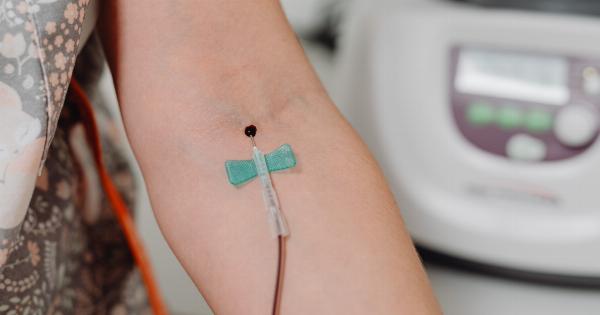Hypertension, commonly known as high blood pressure, is a significant medical condition that affects millions of people worldwide. However, pregnant women are especially vulnerable to complications brought about by hypertension.
The condition poses a significant threat to both the mother and the fetus, leading to potential outcomes such as preterm labor, fetal growth restriction, or even fetal death.
While proper management of hypertensive disorders during pregnancy is crucial, it is equally important to choose the appropriate medication that poses minimal risks to both the mother and the developing baby.
Here, we’ll discuss the antihypertensives that have been deemed safe and effective during pregnancy.
Methyldopa (Aldomet)
Methyldopa is considered the first-line medication for treating hypertension during pregnancy. It has been around for over five decades and has proven to be both effective and safe.
Methyldopa works by reducing the sympathetic nervous system’s activity, leading to lower blood pressure.
Several studies have found methyldopa to be effective at controlling hypertension during pregnancy without any significant adverse effects on the developing fetus.
Methyldopa has also been found to reduce the risk of preeclampsia in women with chronic hypertension.
Labetalol (Trandate)
Labetalol is another medication used to treat hypertension during pregnancy. It is a beta-blocker that works by reducing the heart’s workload, leading to lower blood pressure.
Labetalol has been deemed safe and is considered second-line therapy for hypertension during pregnancy. Studies have shown that labetalol reduces blood pressure while maintaining good fetal outcomes.
However, it is crucial to note that labetalol can cross the placenta, leading to lower fetal heart rate variability.
Nifedipine (Adalat, Procardia)
Nifedipine is a calcium channel blocker used to treat hypertension in non-pregnant patients. It works by blocking calcium channels in the arteries, leading to relaxed blood vessels and lower blood pressure.
Nifedipine is not recommended as first-line therapy during pregnancy but can be used as second-line therapy in women with severe hypertension. Studies have found that nifedipine is safe to use during pregnancy, with no significant effects on the fetus.
It is important to note that nifedipine must be used with caution in women with low blood pressure or heart failure since it can exacerbate these conditions.
Hydralazine (Apresoline)
Hydralazine is a vasodilator used to treat hypertension during pregnancy. It works by relaxing the smooth muscle in the blood vessels, leading to lower blood pressure.
Hydralazine is not recommended as first-line therapy for hypertension during pregnancy and is usually reserved for severe cases that do not respond to other medications.
While studies have found hydralazine to be safe for the fetus, it has been associated with maternal side effects, including headaches, flushing, and tachycardia.
Beta-blockers
Beta-blockers are a class of medications used to treat hypertension, but they are not routinely recommended during pregnancy due to potential risks to the fetus.
Studies have found that beta-blockers can lead to fetal growth restriction, neonatal hypoglycemia, and bradycardia. However, some women with specific medical conditions may still benefit from beta-blockers during pregnancy, and their use should be evaluated on a case-by-case basis.
Angiotensin-converting enzyme inhibitors (ACE inhibitors) and angiotensin receptor blockers (ARBs)
ACE inhibitors and ARBs are medications used to treat hypertension in non-pregnant patients. However, they are contraindicated during pregnancy and should not be used due to the potential for fetal harm.
ACE inhibitors and ARBs can impair fetal kidney development, leading to oligohydramnios (low amniotic fluid levels), fetal growth restriction, and neonatal renal failure. Additionally, use of these medications during pregnancy is associated with increased rates of fetal death.
Conclusion
Hypertension during pregnancy requires proper management to avoid potential complications. Methyldopa and labetalol are considered first- and second-line therapies, respectively, for hypertension during pregnancy.
Nifedipine and hydralazine may be used in severe cases as second-line therapy. While beta-blockers are not routinely recommended, their use may still be considered in specific cases. It is crucial to note that ACE inhibitors and ARBs are contraindicated during pregnancy due to their potential harm to the developing fetus.





























